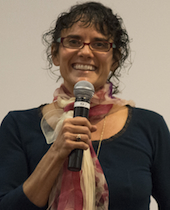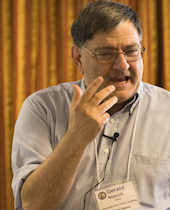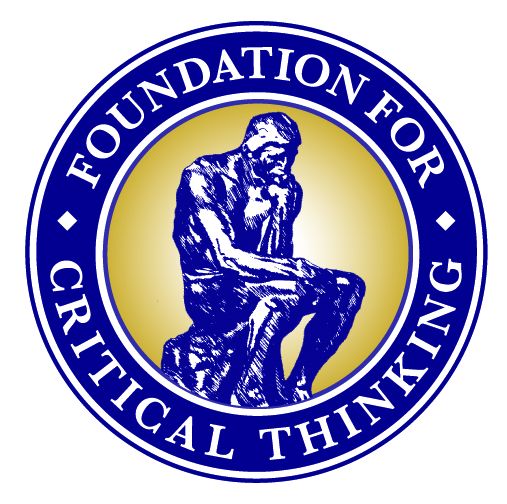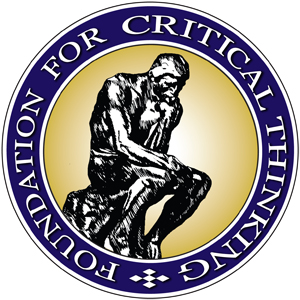
The 40th Annual International Conference
on Critical Thinking
...The Longest-Running Critical Thinking Conference in the World
July 22 – July 26, 2020
in
The Arkansas Ozark Mountains
More Information and Open Registration Available Soon!
Limited Room Block!
(See Below)
Venues
{"id":"4492","title":"","author":"","content":"<hr />\r\n<h2 style=\"padding: 20px; font-size: 18px; color: white; background-image: none; background-attachment: scroll; background-color: #2d4564; text-align: center; background-position: 0% 0%;\"><span style=\"font-size: x-large; font-family: helvetica;\"><strong><span style=\"font-size: 22.0pt; line-height: 107%; font-family: "Cooper Black",serif; mso-fareast-font-family: Calibri; mso-fareast-theme-font: minor-latin; mso-bidi-font-family: "Times New Roman"; mso-bidi-theme-font: minor-bidi; mso-ansi-language: EN-US; mso-fareast-language: EN-US; mso-bidi-language: AR-SA; mso-bidi-font-style: italic;\">Venues<br /></span></strong></span></h2>","public_access":"1","public_downloads":"0","sku":"","files":[],"images":[]}
Join us in the Ozarks in Bentonville, Arkansas! All Conference sessions and activities will take place in several Downtown venues, all within easy walking distance of each other:
Where to Stay
{"id":"4489","title":"","author":"","content":"<h2 style=\"padding: 20px; font-size: 18px; color: white; background-image: none; background-attachment: scroll; background-color: #2d4564; text-align: center; background-position: 0% 0%;\"><span style=\"font-size: x-large; font-family: helvetica;\"><strong><span style=\"font-size: 22.0pt; line-height: 107%; font-family: "Cooper Black",serif; mso-fareast-font-family: Calibri; mso-fareast-theme-font: minor-latin; mso-bidi-font-family: "Times New Roman"; mso-bidi-theme-font: minor-bidi; mso-ansi-language: EN-US; mso-fareast-language: EN-US; mso-bidi-language: AR-SA; mso-bidi-font-style: italic;\">Where to Stay<br /></span></strong></span></h2>","public_access":"1","public_downloads":"0","sku":"","files":[],"images":[]}
We have a limited room block available at 21c Museum Hotel at $185 per room night. 21c is ideally located for the Conference. Book early to ensure you get a room in the middle of Downtown!
Call for Proposals
{"id":"4493","title":"","author":"","content":"<h2 style=\"padding: 20px; font-size: 18px; color: white; background-image: none; background-attachment: scroll; background-color: #2d4564; text-align: center; background-position: 0% 0%;\"><span style=\"font-size: x-large; font-family: helvetica;\"><strong><span style=\"font-size: 22.0pt; line-height: 107%; font-family: "Cooper Black",serif; mso-fareast-font-family: Calibri; mso-fareast-theme-font: minor-latin; mso-bidi-font-family: "Times New Roman"; mso-bidi-theme-font: minor-bidi; mso-ansi-language: EN-US; mso-fareast-language: EN-US; mso-bidi-language: AR-SA; mso-bidi-font-style: italic;\">Call for Proposals<br /></span></strong></span></h2>","public_access":"1","public_downloads":"0","sku":"","files":[],"images":[]}
We are now seeking proposals for Concurrent and Roundtable Presentations! Please see our Call for Proposals page here.
Primary Presenters
{"id":"4490","title":"","author":"","content":"<h2 style=\"padding: 20px; font-size: 18px; color: white; background-image: none; background-attachment: scroll; background-color: #2d4564; text-align: center; background-position: 0% 0%;\"><span style=\"font-size: x-large; font-family: helvetica;\"><strong><span style=\"font-size: 22.0pt; line-height: 107%; font-family: "Cooper Black",serif; mso-fareast-font-family: Calibri; mso-fareast-theme-font: minor-latin; mso-bidi-font-family: "Times New Roman"; mso-bidi-theme-font: minor-bidi; mso-ansi-language: EN-US; mso-fareast-language: EN-US; mso-bidi-language: AR-SA; mso-bidi-font-style: italic;\">Primary Presenters<br /></span></strong></span></h2>","public_access":"1","public_downloads":"1","sku":"","files":[],"images":[]}
 Dr. Linda Elder is an educational psychologist and international authority on critical thinking. President and Senior Fellow at the Foundation for Critical Thinking, she has taught psychology and critical thinking at the college level, and has given presentations to more than 50,000 educators and leaders. She has coauthored four books, including 30 Days to Better Thinking and Better Living through Critical Thinking and Critical Thinking: Tools for Taking Charge of Your Professional and Personal Life, as well as 24 Thinker's Guides on critical thinking. Concerned with understanding and illuminating the relationship between thinking and affect, and the barriers to critical thinking, Dr. Elder has placed these issues at the center of her thinking and work.
Dr. Linda Elder is an educational psychologist and international authority on critical thinking. President and Senior Fellow at the Foundation for Critical Thinking, she has taught psychology and critical thinking at the college level, and has given presentations to more than 50,000 educators and leaders. She has coauthored four books, including 30 Days to Better Thinking and Better Living through Critical Thinking and Critical Thinking: Tools for Taking Charge of Your Professional and Personal Life, as well as 24 Thinker's Guides on critical thinking. Concerned with understanding and illuminating the relationship between thinking and affect, and the barriers to critical thinking, Dr. Elder has placed these issues at the center of her thinking and work.

Dr. Gerald Nosich is a Senior Fellow at the Foundation for Critical Thinking and a prominent authority on critical thinking. He has given more than 150 national and international workshops on critical thinking, has worked with the U.S. Department of Education on a project for the National Assessment of Higher Order Thinking skills, has served as the Assistant Director of the Center for Critical Thinking, and has been featured as a Noted Scholar at the University of British Columbia. Dr. Nosich is Professor Emeritus at SUNY Buffalo State and the University of New Orleans, and is the author of two books including Learning to Think Things Through: A Guide to Critical Thinking Across the Curriculum .
About the Conference
{"id":4539,"title":"","author":"","content":"<h2 style=\"padding: 20px; font-size: 18px; color: white; background-image: none; background-attachment: scroll; background-color: #2d4564; text-align: center; background-position: 0% 0%;\"><span style=\"font-size: x-large; font-family: helvetica;\"><strong><span style=\"font-size: 22.0pt; line-height: 107%; font-family: "Cooper Black",serif; mso-fareast-font-family: Calibri; mso-fareast-theme-font: minor-latin; mso-bidi-font-family: "Times New Roman"; mso-bidi-theme-font: minor-bidi; mso-ansi-language: EN-US; mso-fareast-language: EN-US; mso-bidi-language: AR-SA; mso-bidi-font-style: italic;\">About the Conference</span></strong></span></h2>","public_access":"1","public_downloads":null,"sku":"","files":[],"images":[]}
 Since 1981, The Foundation and Center for Critical Thinking – sister organizations that together represent the world's oldest think tank dedicated to critical thinking – have hosted the world's longest-running critical thinking conference. The conference emphasizes the Paul-Elder Framework for Critical Thinking, which stands apart from other critical thinking theory in that, first, it applies to all human thought in all fields, professions, and domains of life; second, it relies on natural, rather than technical, language to provide tools and concepts that enable the thinker to break down, assess, and enhance his or her own thinking; third, it accounts for human emotions and desires; and fourth, it emphasizes the importance of ethics in reasoning.
Since 1981, The Foundation and Center for Critical Thinking – sister organizations that together represent the world's oldest think tank dedicated to critical thinking – have hosted the world's longest-running critical thinking conference. The conference emphasizes the Paul-Elder Framework for Critical Thinking, which stands apart from other critical thinking theory in that, first, it applies to all human thought in all fields, professions, and domains of life; second, it relies on natural, rather than technical, language to provide tools and concepts that enable the thinker to break down, assess, and enhance his or her own thinking; third, it accounts for human emotions and desires; and fourth, it emphasizes the importance of ethics in reasoning.
Regardless of your professional, educational, or personal background, The Annual International Conference on Critical Thinking provides a unique opportunity for you to improve your understanding of critical thinking, as well as your ability to apply it to your everyday work, learning, and life.





 Dr. Linda Elder is an educational psychologist and international authority on critical thinking. President and Senior Fellow at the Foundation for Critical Thinking, she has taught psychology and critical thinking at the college level, and has given presentations to more than 50,000 educators and leaders. She has coauthored four books, including 30 Days to Better Thinking and Better Living through Critical Thinking and Critical Thinking: Tools for Taking Charge of Your Professional and Personal Life, as well as 24 Thinker's Guides on critical thinking. Concerned with understanding and illuminating the relationship between thinking and affect, and the barriers to critical thinking, Dr. Elder has placed these issues at the center of her thinking and work.
Dr. Linda Elder is an educational psychologist and international authority on critical thinking. President and Senior Fellow at the Foundation for Critical Thinking, she has taught psychology and critical thinking at the college level, and has given presentations to more than 50,000 educators and leaders. She has coauthored four books, including 30 Days to Better Thinking and Better Living through Critical Thinking and Critical Thinking: Tools for Taking Charge of Your Professional and Personal Life, as well as 24 Thinker's Guides on critical thinking. Concerned with understanding and illuminating the relationship between thinking and affect, and the barriers to critical thinking, Dr. Elder has placed these issues at the center of her thinking and work. 
 Since 1981, The Foundation and Center for Critical Thinking – sister organizations that together represent the world's oldest think tank dedicated to critical thinking – have hosted the world's longest-running critical thinking conference. The conference emphasizes the Paul-Elder Framework for Critical Thinking, which stands apart from other critical thinking theory in that, first, it applies to all human thought in all fields, professions, and domains of life; second, it relies on natural, rather than technical, language to provide tools and concepts that enable the thinker to break down, assess, and enhance his or her own thinking; third, it accounts for human emotions and desires; and fourth, it emphasizes the importance of ethics in reasoning.
Since 1981, The Foundation and Center for Critical Thinking – sister organizations that together represent the world's oldest think tank dedicated to critical thinking – have hosted the world's longest-running critical thinking conference. The conference emphasizes the Paul-Elder Framework for Critical Thinking, which stands apart from other critical thinking theory in that, first, it applies to all human thought in all fields, professions, and domains of life; second, it relies on natural, rather than technical, language to provide tools and concepts that enable the thinker to break down, assess, and enhance his or her own thinking; third, it accounts for human emotions and desires; and fourth, it emphasizes the importance of ethics in reasoning. 